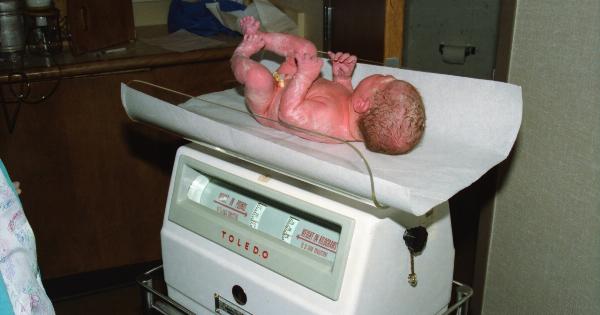When it comes to the health and well-being of our little ones, we always want to ensure their safety and happiness. Sometimes, medical interventions like surgery may be necessary to address certain health issues in babies.
However, it is only natural for parents to want to avoid subjecting their precious babies to surgical procedures if possible. In this article, we will discuss important information and tips on how to potentially avoid baby surgery altogether.
1. Seek Regular Pediatric Check-ups
One of the most effective ways to avoid baby surgery is to ensure your child receives regular pediatric check-ups. These routine visits to the pediatrician allow for early detection of any potential health issues.
Early diagnosis often leads to non-surgical treatment options or preventive measures, eliminating the need for surgery.
2. Practice Proper Nutrition and Feeding Habits
Proper nutrition plays a crucial role in the healthy growth and development of babies. Ensuring that your little one receives a balanced diet with all the necessary nutrients can significantly reduce the risk of surgery.
Consult with a pediatrician or a nutritionist to determine the appropriate diet for your baby’s age and specific needs.
Additionally, practicing healthy feeding habits, such as avoiding overfeeding or introducing solid foods at the appropriate time, can prevent certain conditions that may require surgical intervention.
3. Promote a Safe and Clean Environment
Babies are naturally curious beings and explore the world around them by touching and putting objects in their mouths. Creating a safe and clean environment can help prevent accidents and injuries that might require surgical intervention.
Baby-proof your home by securing electrical outlets, covering sharp edges, and ensuring that harmful substances or objects are out of reach.
4. Vaccinate Your Baby
Immunizations are crucial for protecting your baby against a range of dangerous diseases.
By keeping your baby up to date with recommended vaccines, you can significantly reduce the risk of infections and related complications that might require surgical treatment. Consult your pediatrician to ensure your baby receives the appropriate vaccinations based on their age and medical history.
5. Practice Good Hygiene
Teaching and practicing good hygiene habits can help prevent various infections and conditions that might require surgical intervention.
Regularly wash your baby’s hands, clean their toys and pacifiers, and maintain proper hygiene practices during diaper changes. By doing so, you can minimize the chances of your baby developing infections or other conditions that might necessitate surgery.
6. Monitor and Address Developmental Delays Early
Early detection and intervention for developmental delays can significantly reduce the need for surgery later on. Keep a close eye on your baby’s developmental milestones and consult with your pediatrician if you notice any delays or concerns.
Prompt intervention, such as physical therapy or speech therapy, can often address developmental issues without the need for surgical interventions.
7. Strengthen Your Baby’s Immune System
A strong immune system is vital for warding off infections and promoting overall health. Breastfeeding your baby provides essential antibodies that help strengthen their immune system.
If breastfeeding is not possible, consult with your pediatrician regarding the best options to boost your baby’s immune system, such as appropriate formula or supplements.
8. Avoid Secondhand Smoke
Exposure to secondhand smoke can increase the risk of various respiratory conditions and infections in babies. These conditions might require surgical treatment to alleviate the associated complications.
Protect your baby from secondhand smoke by creating a smoke-free environment both at home and in the car.
9. Educate Yourself and Engage in Preventive Measures
Stay informed about common baby health issues and conditions that may require surgical intervention.
By understanding the risk factors and potential preventive measures, you can actively engage in practices that reduce the likelihood of your baby needing surgery. Attend parenting classes, read reputable health publications, and consult your pediatrician for guidance.
10. Be Mindful of Your Baby’s Safety
Accidents happen, and some may require surgical intervention to address injuries.
However, by being mindful of your baby’s safety and taking appropriate precautions, such as using safety gates, securing furniture, and using car seats correctly, you can minimize the risk of accidents leading to surgery.
Avoiding baby surgery is a goal that every parent wishes to achieve. While some health issues may make surgical intervention necessary, following these tips can potentially reduce the likelihood of your baby requiring surgery.
Always consult your pediatrician for personalized advice regarding your baby’s specific health needs.































